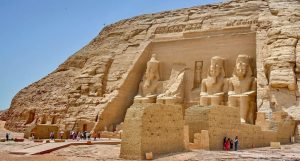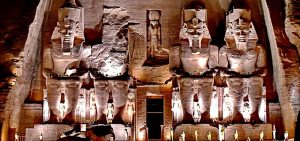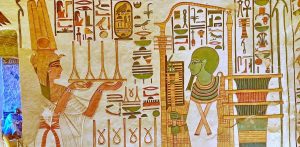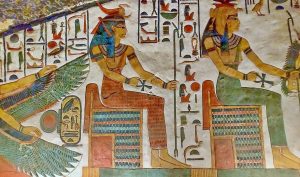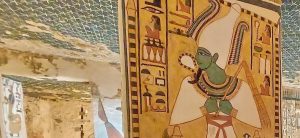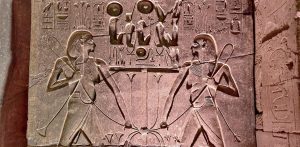Ancient Egypt is renowned for its impressive achievements in art, architecture, religion, and culture. However, less recognized is the ancient Egyptian government, which supported and governed the civilization for thousands of years. The ancient Egyptians’ political structure was a complex and fascinating system that evolved over centuries and played a crucial role in the success and longevity of the civilization.
From the early dynasties through the Ptolemaic period, the government continued to develop and adapt to the changing needs of society. In this essay, we will explore the different forms of government that existed in ancient Egypt, how they evolved, and the key figures who played vital roles in the administration of the state.
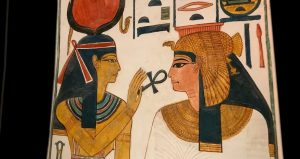
The civilization of ancient Egypt dates back to the Early Dynastic Period, around 3100 BC, to the end of the Ptolemaic dynasty in 30 BC. During this time, Egypt developed into a sophisticated culture characterized by its impressive art and architecture, religion, and complex ancient Egyptian government system. Ancient Egypt was ruled by a succession of kings who were known as pharaohs. In this research, we will discuss the various aspects of ancient Egypt’s government.
The Pharaoh
The pharaoh was the supreme leader in ancient Egypt and served as the head of the government and the state religion. The pharaohs were believed to be divine rulers, and their subjects considered them to be the representatives of the gods on earth.
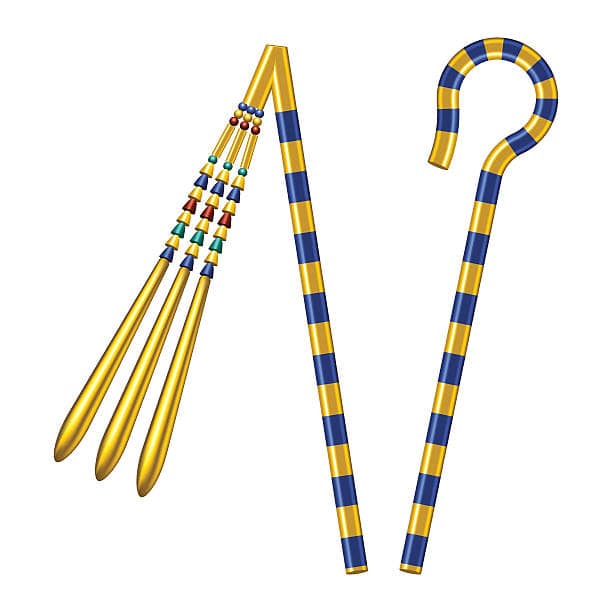
The pharaoh was responsible for maintaining order in the kingdom and ensuring the well-being of his people. One of the most successful pharaohs was King Ramesses II of the New Kingdom period. He was responsible for constructing many of the impressive monuments and temples that still stand today, such as the Temple of Abu Simbel. Ramesses II also oversaw many military campaigns that expanded the Egyptian empire, making him one of the most powerful rulers in antiquity.
The Ancient Egyptian Government Structure
Ancient Egypt was divided into several administrative regions called nomes, each headed by a nomarch who reported to the pharaoh. The nomarchs were responsible for maintaining civil order, collecting taxes, and providing conscripts for the pharaoh’s armies.
The nomarchs also acted as judges for the local disputes that arose. The pharaoh was advised by a council of high-ranking officials who were appointed by him. These officials included the vizier, who was the chief minister, and the general of the armies. They were responsible for overseeing various aspects of government, such as law enforcement and public works.
The Legal System
The legal system in ancient Egypt was complex and was based on a set of laws that were outlined in the “Book of the Dead.” These laws governed everything from property disputes to criminal behavior. The Book of the Dead was a collection of spells and texts that accompanied the dead in their afterlife.
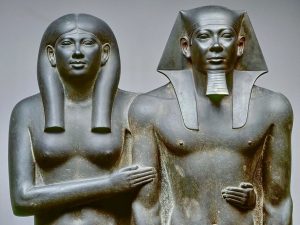
Cases were heard by a local magistrate, who was typically the nomarch. The decisions of the magistrate could be appealed to a higher-level court, which was presided over by the vizier. The pharaoh had the final say in all legal matters, and his judgment was considered to be divine and irrevocable.
The economy of ancient Egypt was primarily based on agriculture, with the Nile River serving as a vital source of water for irrigation. The Nile allowed farmers to produce multiple crops each year, sustaining a large population and enabling the development of a division of labor and specialization. Other economic activities include trade, mining, and manufacturing.
Trade was an essential part of the ancient Egyptian economy, with Egypt being a significant exporter of grain and other commodities such as papyrus, gold, and linen. There is evidence to suggest that Egypt was involved in long-distance trade with other civilizations, such as Nubia, Punt (modern-day Somalia), and the Aegean.
The value of trade was also reflected in the minting of silver and gold coins. However, bartering goods was the most common form of exchange for everyday transactions. In addition, the government levied taxes on farmers and merchants to fund public works and pay the army.
In conclusion, ancient Egypt’s government was a complex system that was designed to maintain order and ensure the well-being of its subjects. The pharaoh was the supreme leader, who was advised by a council of officials. The legal system was based on a set of laws that governed everything from property disputes to criminal behavior. The economy was primarily based on agriculture, with trade and other economic activities being essential for the development of civilization.
In conclusion, the ancient Egyptian government was a highly sophisticated system that was designed to maintain order and ensure the well-being of its subjects. The pharaoh was the supreme leader and represented a divine authority with absolute control over the different aspects of the state.
The ancient Egyptian government was supported by a bureaucratic administrative structure consisting of different officials appointed by the pharaoh. The legal system in ancient Egypt was based on a set of laws outlined in the “Book of the Dead” and was responsible for maintaining peace and resolving disputes.
The economy of ancient Egypt was primarily based on agriculture, but trade and other economic activities were integral to the civilization’s development. Overall, the ancient Egyptians created a complex system of government that has continued to fascinate and inspire people for thousands of years.
Read more in-depth about the ancient Egyptian Government
Check out our blog

